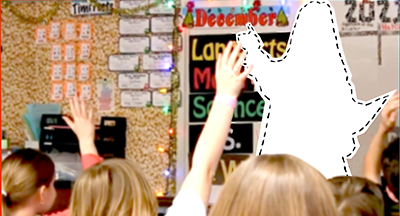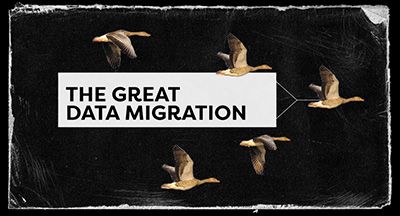
Can you spot a prodigy?
No? Don’t sweat it. Throughout history, many of the most legendary thinkers didn’t look like geniuses in the classroom. Picasso got bad grades. Einstein had trouble with speech. Beethoven struggled with spelling.
But you should be concerned if you don’t at least have a plan to provide appropriate challenges and support for your most advanced students. There are some strict guidelines and compliance requirements dictating the types and amount of support that students with disabilities receive in our schools – but what about the prodigies? More often than not, it's up to the individual district (or even school) to come up with a plan that works.
For context, here's a little background on the history of educating gifted and talented students, right up to where we stand today. No time for background knowledge? Skip ahead to our recommendations for discovering and nurturing the genius in every kid.
What’s the history?
The U.S. has a rollercoaster history with its advanced learners. We led the way in 19th century gifted education, considering it a type of special education for high ability learners. In recent years, we’ve lost our position as a frontrunner in gifted education.The emphasis on closing the equality gap in No Child Left Behind (NCLB) led to many school districts reallocating funds from G&T in favor of struggling and economically disadvantaged students. In a perfect world, this wouldn't be a decision we would have to make, but no matter how you look at it, gifted and talented programs were scaled way back in the past 20 years to free up money for other things.
Where are we now?
Around the world, others have stepped up their games. Hong Kong’s gifted education model looks a lot like our three-tiered RTI pyramid, except instead of interventions, its focus is enrichment. Level one offers whole-class enrichment, and level two provides pull-out programs for supplementation in specific areas. Level three focuses on individualized arrangements for exceptionally gifted students – the prodigies. In this system, academic enrichment and continuous improvement are expected for all students.In the U.S., the Every Student Succeeds Act (ESSA), NCLB's replacement, puts more emphasis on the needs of high ability learners, which is encouraging. Within ESSA, the TALENT Act calls for more professional development, research, and accountability for the progress of gifted and talented students. There are even new sources of funding, as Title I and Title II funds now must be used in part to identify and serve gifted students and to improve professional development for G&T teachers.
How to Discover and Nurture your Prodigies
You’ve got to be resourceful to discover the next George Washington Carver or Marie Curie. Even if you qualify for additional funding, it’s still a challenge to meet all needs. In addition to time-tested strategies like compacted curricula and accelerated learning, here are some alternative approaches to help you find and foster students’ gifts.Scout out the talent: The same technology that helps you manage IEPs and track RTI interventions can help you identify high achievers. Wouldn't it be nice if teachers could flag those students who are consistently acing pretests, automatically prompting gifted and talented referrals? With so much data now available, it’s easier than ever to determine which students aren't being challenged.
Teachers trained in gifted education are better talent scouts, too. Find and share training opportunities with your staff, especially if you qualify for Title II professional development funds.
Assess & regroup: A shift in student grouping could create an optimal learning environment for all. Purdue University’s Marcia Gentry has developed a strategy called Total School Cluster Grouping (TSCG), which identifies students’ achievement levels yearly and gathers high-achieving students together in the same class.
Gentry’s research finds that when students are grouped in this manner, achievement levels rise in regular classrooms and advanced classrooms alike. TSCG provides full-time services for gifted and talented students at no extra cost, and students in regular classrooms show increased confidence and participation and receive more teacher attention. What’s best for gifted students might just be what’s best for everyone.
Feed their appetites: A growing number of American teens manage to excel at advanced math despite declining national scores. How do they do it? Peg Tyre, author of The Math Revolution, says that these standout students’ big appetites for math are being fed not only in the classroom, but also in summer camps, math circles, competitions, chat rooms, advanced learners’ websites, and even with board games like Settlers of Catan and Dominion. Publicize and promote a wide variety of resources – local, regional, and online – so teachers, parents, and students know what’s available. Talk to your most passionate math teachers and department leaders about opening up more extracurricular opportunities for those analytical prodigies.
Personalize their learning: Ask ten people for the definition of “personalized learning” and you’ll likely get ten different responses. No matter the definition, the end goal is the same: an education tailored to the needs of the learner. Project-based learning and passion-based learning will allow gifted students to spend time during the school day immersed in music, computers, art – whatever they crave most. Learner profiles, personalized learning paths, and standards-based grading also offer a more personalized learning experience to keep advanced students engaged. Makerspaces and resources periods are the kind of future-ready opportunities that will play a key role in our next educational evolution. Why not get a head start?
Look out for aptitude and attitude: There’s a lot to be said about enthusiasm. Many of America’s top math students were first targeted for enrichment not because they were geniuses, but because they loved doing math. With their passions fueled, they rose to the top. The same can be said for the creative crowd. You’re more likely to find the next Maya Angelou if you’re keeping track of ability and enjoyment in equal measure. It takes a sharp eye (or ear) to catch the introverted geniuses, but when empathy and data meet, every student wins.
Despite the humble beginnings of most historical geniuses, their talents were eventually uncovered, if not always encouraged. The ongoing shift toward universal enrichment and flexibility over structure and rigidity will be a boon to all students. If we can help even one more prodigy reach his or her full potential, we'll be doing a service to all mankind. We can't afford to let the next Beethoven slip through the cracks.
Make a Difference
We're always looking to improve our Student Services tools based on the needs of classroom leaders and administrators in what we see as the next big boom period for gifted ed. If you have an idea or a request, please contact us today.WHAT'S NEXT FOR YOUR EDTECH? The right combo of tools & support retains staff and serves students better. We'd love to help. Visit skyward.com/get-started to learn more.

|
Leah Kruger Director of Product Management |




